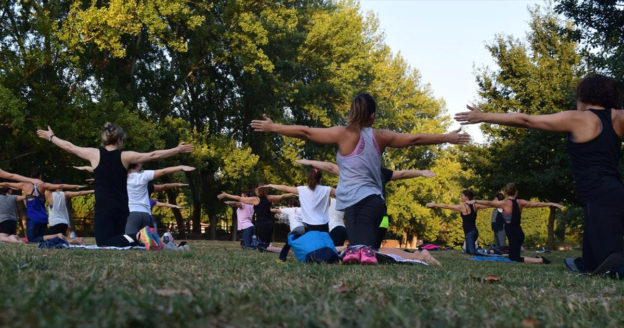The first 30 days of sobriety are a crucial and often challenging period for individuals recovering from substance addiction. Physical exercise can be a lifeline, offering many benefits that help in the journey towards lasting recovery. Here are eight reasons why it works!
1. Replaces Old Habits with Healthy Routines
One of the primary advantages of incorporating regular exercise into the early days of sobriety is its ability to help individuals replace old habits. Substance use was often a daily ritual, and exercise can provide a structured and healthy activity to fill that void, offering a new routine to look forward to.
2. Manages Stress and Emotional Turmoil
Moreover, the stress and emotional turmoil that often accompany early sobriety can be mitigated through physical activity. Exercise triggers the release of endorphins, which are natural mood-lifters that reduce stress and enhance overall well-being. This can be crucial, as individuals navigate the challenges of withdrawal and emotional fluctuations.
3. Promotes Better Sleep Quality
The first 30 days of sobriety can also be marked by disrupted sleep patterns, further complicating recovery. Exercise, however, can promote better sleep quality, helping individuals establish a healthier sleep routine. Adequate rest is essential for emotional stability and mental clarity, making exercise’s role even more vital.
4. Rebuilds Self-Esteem and Self-Worth
On the psychological front, early sobriety often involves grappling with low self-esteem and diminished self-worth. Substance use can erode these aspects of one’s identity. Regular exercise and even modest fitness goals can contribute to rebuilding self-esteem. It also fosters a sense of accomplishment and strengthens a positive self-image.
5. Creates Structure and Routine in Early Sobriety
Furthermore, exercise provides structure and routine, which is paramount during the early stages of recovery. The sense of order it brings can help individuals stay committed to their sobriety goals and provide a healthier framework for their daily lives.
6. Provides Social Support and Building Sober Connections
Social support is another significant benefit. Engaging in group activities, such as team sports or exercise classes, can help individuals forge connections with like-minded individuals who are also committed to a sober lifestyle. Building a network of sober friends can be an invaluable source of support and motivation.
7. Restores Physical Health During Early Sobriety
On the physical health front, regular exercise helps restore well-being. Substance use can take a toll on the body, and exercise helps rebuild physical health by promoting cardiovascular fitness, muscle strength, and vitality.
8. Sets the Stage for a Healthier Lifestyle!
Finally, the habit of exercise formed in the first 30 days can set the stage for a healthier, more active lifestyle in the long run. It offers individuals the opportunity to reorient their focus toward self-care, well-being, and a more fulfilling life beyond substance dependence.
Guidance for Incorporating Exercise into Sobriety
The integration of exercise into the early stages of sobriety should be supported with the guidance of health professionals or addiction specialists. It’s crucial to start slowly, remain hydrated, and listen to one’s body.
By working with a therapist or counselor specializing in addiction recovery, individuals can develop a personalized exercise plan that complements their unique needs and supports their path to lasting sobriety. If you are struggling with early sobriety, Awkenings Treatment Center can help. Contact us today.








